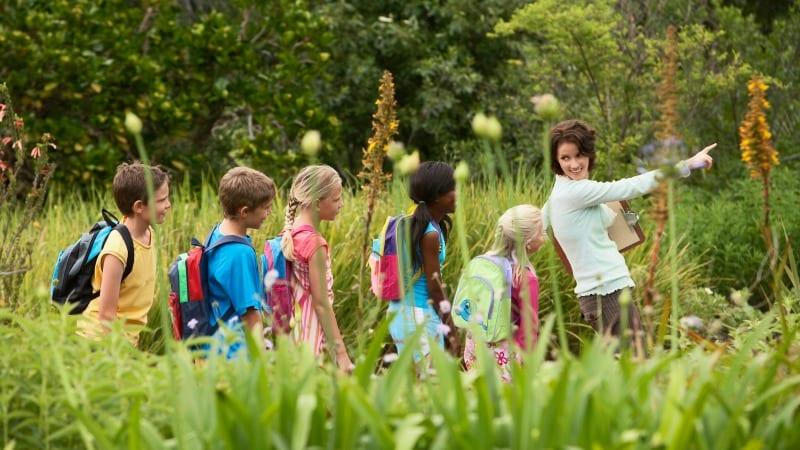
Students today are more visual learners. Rather than solely relying on bookish knowledge they are more inclined towards real experiences. Field trips allow just that and more. Children get to touch, feel, and listen to whatever they are learning about. These trips assist children in building on classroom instruction, comprehend the topics better, and build cultural understanding and tolerance.
Several studies have observed the positive impacts of field trips on the academic life of students. Usually, the pros surpass the cons. Field trips help students connect their lessons to the real world, allowing them access to culture, history, and art that is often untaught in school. In another study by the NEA (The National Education Association) these stats were concluded that the youth who take educational trips:
- Are more likely to get better grades (59%)
- Have higher rates of getting graduation from high school (95%) and college (63%)
- Can get a higher income (12% higher annually)
- 89% of the respondents reported that educational field trips had a lasting and positive impact on their education. The trips allowed them to be more engaged and intellectually curious.
Benefits of Field Trips
Here are some key benefits of field trips and shed light on why they are important for students:
Real-World Learning
A field trip can be termed as one of the best tools that teachers can utilize to let their students experience the real world in a better way. No matter where you are taking students, to a factory, museum, a theatre, a restaurant, or an adventure park, each of the experiences students have helps them in contributing to how they see and perceive the world.
When students go beyond the four walls of the classroom, they can see the different connections between the real world and what is happening at school. They can apply their knowledge and learning to the real world. It also helps to improve their problem-solving and decision-making skills. Everything that students learn throughout their academic life leaves an impact on them and also affects their personality as they grow up.
Access
Field trips help students learn about things and environments that are not within their reach at the school. Be it tools or environments, students can learn a lot about both by going beyond the school environment.
For example, if students are learning about marine life and fish, they can have a great experience at an aquarium and understand the underwater ecosystem. The same goes for manufacturing. If students are learning about how something is made be it packages, candies, or even buttons, they can visit its factory and see a product when it is raw material and the entire process it goes through to reach them. Each experience that a child has strengthens their learning and also supports academic concepts.
The Academic Impact
Another great benefit of field trips for students is that they can help to improve their test scores. A study found that middle school students who went on science field trips obtained comparatively high scores in the state science test. These students have clarity and can grasp the concepts in a much better way through field trips and hands-on learning. Moreover, field trips are important as students engage in content in multiple ways. The concepts that are presented through the different modes allow them to feel confident and smart who have a hard time struggling with traditional learning. Moreover, students can access the content in a much better way when they learn holistically.
There are all kinds of students belonging to economic classes. Some have limited exposure. However, they get to learn about how things happen apart from what they see in their surroundings. Within each student’s region or city, their places and people that you cannot experience or interact with within the classroom. Field trips allow for a multisensory learning experience that helps in creating enthusiasm and one-dimensional lessons for a subject that one cannot mimic through media.
Socio-Emotional Growth
Studies found that students who went on school field trips become more tolerant and emphatic. Also, these students exhibit critical thinking skills and increased empathy. When students study art and history and visit museums and other places that depict the culture, they get a chance to think about a topic or theme using a different perspective.
Also read about:
Lockdown and upcycling of custom cereal boxes
Tips to customise engagement rings for couples
Custom printed Soap Packaging Boxes wholesale rate by Custom Boxes Zone








